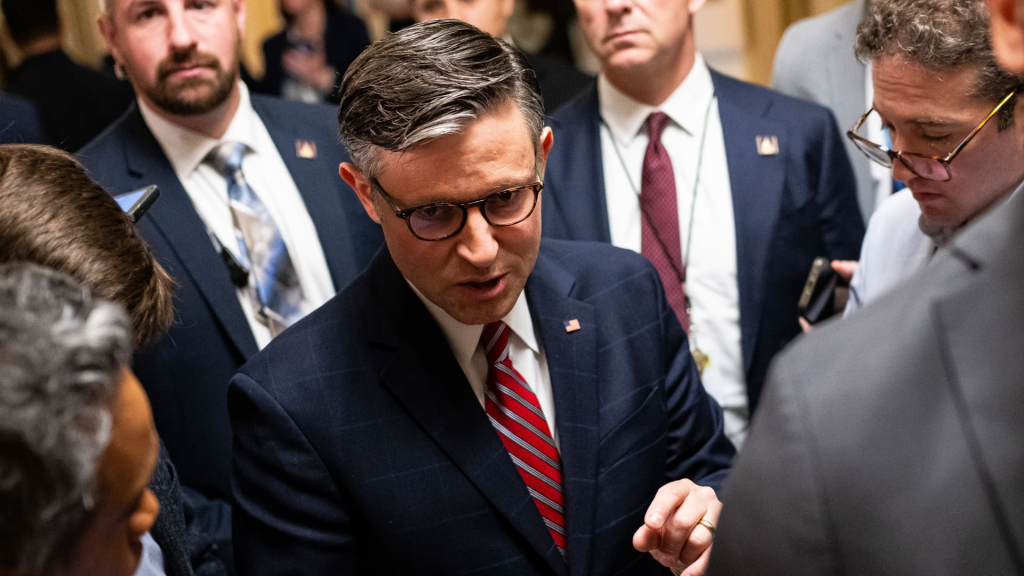On Tuesday, the House of Representatives assumed control of President Donald Trump’s expansive legislation after the Senate narrowly passed it, following an intense period of negotiations and hasty compromises.
Republican Speaker Mike Johnson now faces a challenging road ahead in navigating the bill through the House, particularly as several members of his caucus have voiced their discontent with the Senate’s version of the legislation.
The Senate’s final vote was a slim 51-50, necessitating a tie-breaking intervention from Vice President JD Vance.
Rep. Andy Ogles, R-Tenn., expressed his dissatisfaction on X, stating, “I don’t work for the Senate parliamentarian. I work for the PEOPLE.” He criticized the Senate’s iteration of the bill as a “dud” and announced that he had submitted an amendment to replace it with the original, robust House proposal from weeks prior.
In addition to Ogles, Rep. Ralph Norman of South Carolina is reported to be against the bill, as noted by Punchbowl. The extent of opposition among House Republicans remained unclear as of Tuesday afternoon.
Two Republicans—Reps. Thomas Massie from Kentucky and Warren Davidson from Ohio—voted against the House bill in May and are expected to do the same with the current iteration.
Rep. Andy Harris of Maryland, who leads the hardline House Freedom Caucus, had previously voted present during the past vote.
For Johnson to secure passage of the legislation along party lines, he can afford to lose only three votes if all members participate in the vote.
Republicans face potential attendance difficulties if they attempt to conduct the vote on Wednesday. Severe storms in the Washington area on Tuesday afternoon resulted in flight cancellations, impacting some members’ ability to return to the Capitol.
Since remote voting is prohibited for House members, absent members will not have their votes counted.
Adding urgency to Johnson’s efforts is the Republicans’ self-imposed deadline of July 4, though Trump has recently moderated his stance on this timeframe.
However, for the bill to reach Trump’s desk for his signature, the House must first endorse the Senate’s revised version, which has undergone significant alterations since it was initially passed by the House on May 22 with a narrow vote of 215-214.
House Republicans have raised alarms regarding elements of the Senate bill, particularly concerning heavier cuts to Medicaid and an inflated overall cost.
Additionally, the Senate proposal includes a $5 trillion increase to the debt ceiling, a considerable jump from the $4 trillion increase that the House had approved.
An analysis by the Congressional Budget Office indicates that the Senate bill could add upwards of $3.9 trillion to the national debt, a significant concern for fiscally conservative members in the House.
This is developing news. Please check back for updates.


























